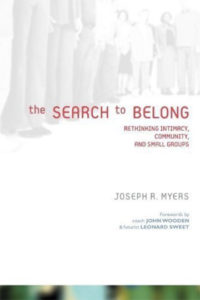
I saw this picture in my Instagram feed recently. And my first thought was that the poster probably wasn’t. Why? Because most Christians in the US do not. There really aren’t that many things that Jesus expects of us. But the first thing that came to mind, because, let’s be honest, it’s one of the biggest issues we’ll ever face, is how Christians are neglecting “the least of these” in our society.
Rather than protecting the least of these and standing up for their them (especially in their time of need), many Christians are putting their own interests and gains above that of their neighbors.
So we’re here today to talk about who the “least of these” are.
To start, let’s look at the passage in which the phrase appears (twice). Matthew 25:31-46[note]full text[/note] addresses two groups of people on the day of judgment: those who have helped the “least of these” and those who have not. Those who did, according to Jesus, are considered righteous because they took care of him when they took care of them. Those who did not are considered cursed.[note]It is interesting that those who did take care of the poor were ignorant of their works[/note]
According to Jesus, the “least of these” in this situation are- the hungry; the thirsty; the stranger; the poor; the imprisoned; the sick. But I don’t think anyone would assert that this is an all-inclusive list. So, to get a full view of whom Jesus is talking about, we must look at the word Jesus used: elachistos. And while it does literally mean “least”, it could mean least in:
size
amount
importance
authority
number
rank[note]Blue Letter Bible[/note]
Considering that Jesus is talking about people, he’s probably not talking about their size. Of the ten other times elachistos is used in the New Testament, only two others is it used in conjunction with a person,([note]Matt 4:19 and 1 Cor 15:9[/note] and both address a person’s importance, influence, or rank.
While in today’s world this may not seem like much, in a society that places a great deal of importance on one’s position in society, this is telling. Jesus is saying that those who don’t care for the least valued members of society are not taking care of him. In his time, they were the sick, the poor, the beggars. [note]They were, in some regards, considered “untouchable.”(We still see this in some cultures today[/note]
In our culture, they’re the minorities.
Those who have less influence and value in the society because they are less prominent.
There is now another issue to address. Jesus does say “least of these my brothers and sisters…”[note]NLT[/note]While I would argue that the “brothers and sisters” section is him addressing his audience, that’s not how history has seen it. The word is adelphos and it is used over 340 times in the New Testament, so I simply do not have the time to do a word study on it, but it could mean Christians, or simply any fellow man/woman.[note]Blue Letter Bible[/note]
Historically, the general consensus has been that Jesus is talking about other Christians. The view that it is addressing every human has been around since the text’s writing, but third-century theologians started the prominence of only Christians. The 19th and 20th centuries have seen a resurgence in the universal view. I firmly believe Jesus is talking about every human being.
But I have a challenge for those who believe it is only talking about Christians: who are you to judge who is a Christian and isn’t? We love to talk about how God knows our hearts even if others don’t, but we don’t allow the same courtesy to others. Only God can say who is a follower of Christ and who isn’t. With that in mind, why don’t we just assume that everyone is and give them all the same courtesy? Doing so allows us to take care of all of the least of these. It allows us to fall into the universal camp, even if we don’t believe it is universal, and do the most good for the most people. And let’s be honest, since nobody is 100% sure on whether it is just Christians or universal, wouldn’t it be the safest bet to just assume it includes the most amount of people?
Now the question is, how do we care for them?
There’s a pretty easy litmus test for that: do to them what you would have done to you. Yes, it’s the cliche golden rule, but it’s rooted in one of Jesus’ only true commandments: Love your neighbor as yourself.
If you were hungry would you want food? Then feed those who are hungry.
If you were homeless would you want a place to live? Then do all you can to give that to the homeless.
If you were scared for your family would you want to be at peace? Then put those who are scared at peace.
If your worth as a human was being questioned would you want it to be upheld? Then uphold it for those whose worth is being questioned.
If we don’t take care of the least of these, we aren’t taking care of Christ. And in the aftermath of all that’s happened in our country recently, it’s more important than ever to stand with Christ and stand with the least of these.





